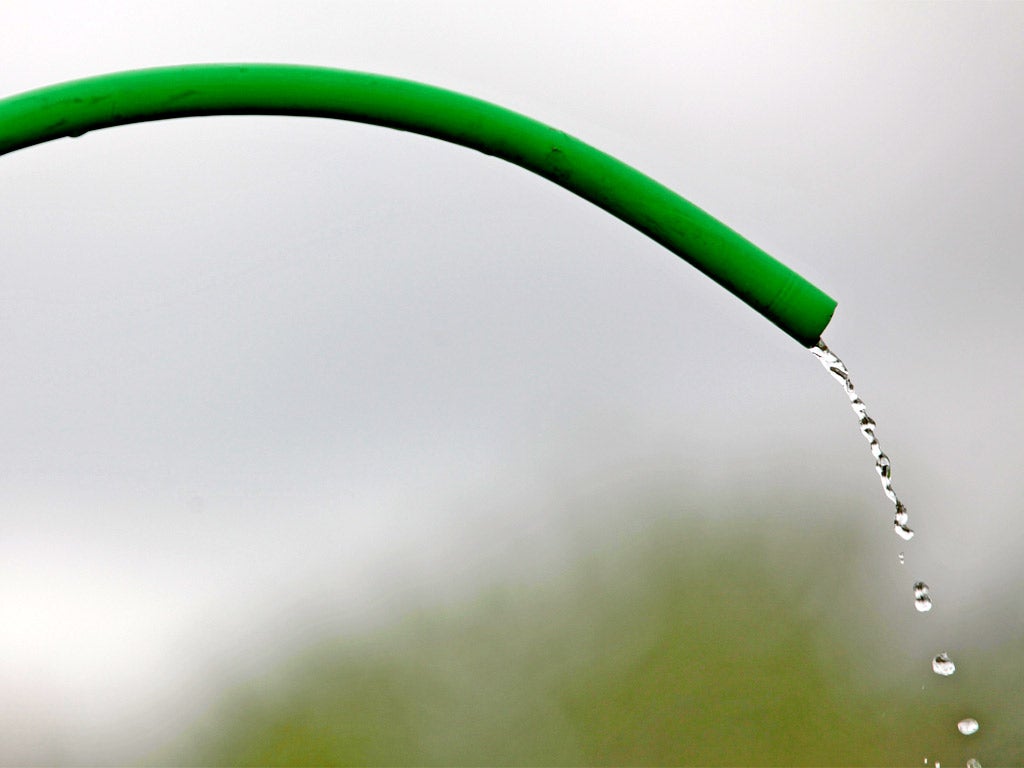UK heatwave: Reservoir water levels hit record lows amid hosepipe ban warning
Some water levels are lower than recorded during the scorching summer of 1995.

Your support helps us to tell the story
From reproductive rights to climate change to Big Tech, The Independent is on the ground when the story is developing. Whether it's investigating the financials of Elon Musk's pro-Trump PAC or producing our latest documentary, 'The A Word', which shines a light on the American women fighting for reproductive rights, we know how important it is to parse out the facts from the messaging.
At such a critical moment in US history, we need reporters on the ground. Your donation allows us to keep sending journalists to speak to both sides of the story.
The Independent is trusted by Americans across the entire political spectrum. And unlike many other quality news outlets, we choose not to lock Americans out of our reporting and analysis with paywalls. We believe quality journalism should be available to everyone, paid for by those who can afford it.
Your support makes all the difference.Water firms are urging families to save water as reservoir levels dip dangerously low amid soaring temperatures in the UK.
Water levels at some reservoirs are lower than recorded during the scorching summer of 1995.
Yorkshire Water has admitted it can’t rule out restrictions, such as a hosepipe ban, and urged customers to cut down on water usage.
Neil Dewis, head of water, told the BBC restrictions were "just one of the tools" the company could employ.
He said: "We came into March with stocks very nearly full, as we’d expect.
"It doesn’t feel like it’s been a great summer, but there’s been barely any rainfall since then, that’s why stocks are currently low."
Reservoir levels are at 62%, the same level as 1995 when 400 tankers of water were driven into Yorkshire every day to keep taps running.
And water levels in some of Devon and Cornwall’s largest reservoirs have dropped lower than 1995, reports DevonLive.
According to data from the South West Water (SWW) website released earlier this month, the total storage levels for the region’s largest reservoirs is 66.1%. The level was roughly 90% at the same time in 2021 and around 75% in 1995.
A spokesperson for SWW told DevonLive: “We closely monitor our reservoirs all year round to ensure we have enough water for all our customers and the region’s visitors as people come to enjoy the beautiful South West over the summer months.
“We are confident that we have sufficient water stored in our reservoirs but we always ask customers to think about their water usage to not just help save water but also help keep bills down.
“There are some very easy ways to save water, such as turning the tap off while brushing your teeth, using a watering can in the garden and having a shower instead of a bath."
An Environment Agency spokesperson said: “Dry weather this year has led to receding river flows across much of England and reservoir levels falling across Yorkshire, central and southwest England.
“We are working with water companies and other abstractors to monitor water resources and ensure the needs of water users and the environment are met. We can all do our part to use water wisely, reduce our usage and manage this precious resource.”
Ministers are reportedly drawing up plans for an emergency response to the heatwave currently gripping the country, following the Met Office’s amber heat warning on Monday.
The Daily Telegraph reported that a Cobra meeting was held at Downing Street about the soaring temperatures in the UK and the possible danger to life if temperatures hit 40C.
The amber extreme heat alert has been issued by the Met Office for “exceptionally high” temperatures until Sunday, with forecasters warning the conditions have the potential to cause serious illness or even death.
The UK Health Security Agency (UKHSA) could declare a ‘level four emergency’ if the heat becomes so severe that “illness and death may occur among the fit and healthy”.
Join our commenting forum
Join thought-provoking conversations, follow other Independent readers and see their replies
Comments